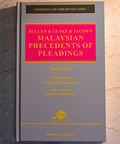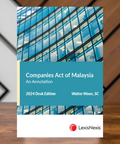![Companies (Winding-Up) Rules 1972 [PU(A) 289/1972] [As At 1st December 2024]](http://www.joshualegalartgallery.com/cdn/shop/files/Template_Act_new_-_2025-01-27T153430.010.png?v=1737963405&width=480)
![Companies (Winding-Up) Rules 1972 [PU(A) 289/1972] [As At 1st December 2024]](http://www.joshualegalartgallery.com/cdn/shop/files/ILBS-005_1__06.png?v=1737963405&width=480)
![Companies (Winding-Up) Rules 1972 [PU(A) 289/1972] [As At 1st December 2024]](http://www.joshualegalartgallery.com/cdn/shop/files/ILBS-005_1__07.png?v=1737963405&width=480)
![Companies (Winding-Up) Rules 1972 [PU(A) 289/1972] [As At 1st December 2024]](http://www.joshualegalartgallery.com/cdn/shop/files/cup_862088ad-0260-421f-ad97-e21c7040a340.jpg?v=1737963405&width=480)
![Companies (Winding-Up) Rules 1972 [PU(A) 289/1972] [As At 1st December 2024]](http://www.joshualegalartgallery.com/cdn/shop/products/JLAG_efd7fdb4-6432-445b-aa00-50419a7f1e16.jpg?v=1737963405&width=480)
Companies (Winding-Up) Rules 1972 [PU(A) 289/1972] [As At 1st December 2024]
Companies (Winding-Up) Rules 1972
[As At 1st December 2024]
Detailed Contents Of Companies (Winding-Up) Rules 1972 :
The Companies (Winding-Up) Rules 1972 [PU(A) 289/1972] is a set of regulations that govern the winding-up or liquidation process of companies in Malaysia. The rules were first enacted in 1972 and have been subsequently amended several times, with the most recent version as of 1st December 2024. The purpose of these rules is to provide a comprehensive framework for the winding-up of companies in an orderly and efficient manner, while safeguarding the interests of all stakeholders involved.
Here are some of the key provisions of the Companies (Winding-Up) Rules 1972:
-
Application for Winding-Up: A company can be wound up by the court if it is unable to pay its debts, or if the company itself or its members or creditors have passed a resolution for winding-up. An application for winding-up must be made to the court, along with supporting evidence and documents.
-
Appointment of Liquidator: Once a company is wound up, a liquidator must be appointed to manage the affairs of the company and distribute its assets to creditors and shareholders. The liquidator can be appointed by the court or by the company's creditors or members.
-
Powers and Duties of Liquidator: The liquidator has broad powers to manage the company's affairs, including the power to sell assets, collect debts, and enter into contracts. The liquidator must also prepare a statement of affairs and submit it to the court and creditors.
-
Claims by Creditors: Creditors of the company must file their claims with the liquidator within a specified period, failing which their claims may be disallowed. The liquidator must then assess and rank the claims in accordance with the priority set out in the law.
-
Distribution of Assets: Once all claims have been assessed and ranked, the liquidator must distribute the assets of the company in accordance with the priority set out in the law. Any surplus assets must be distributed among the shareholders of the company.
-
Dissolution of Company: Once all the assets of the company have been distributed, the liquidator must apply to the court for the dissolution of the company. The court may order the dissolution of the company if it is satisfied that all the affairs of the company have been wound up.
Overall, the Companies (Winding-Up) Rules 1972 provides a comprehensive framework for the winding-up of companies in Malaysia. The rules aim to ensure that the interests of all stakeholders are protected, and that the winding-up process is conducted in an orderly and efficient manner.

Latest releases
Get your copy today!
































